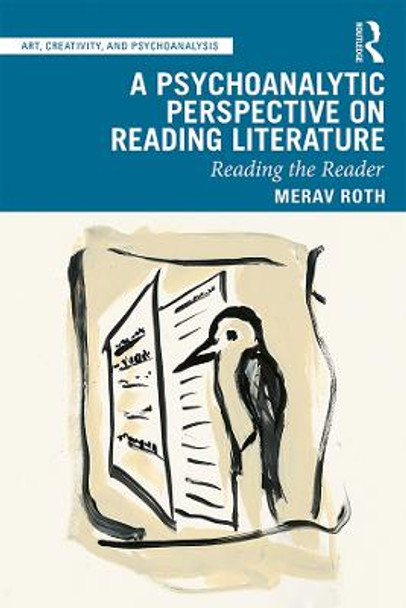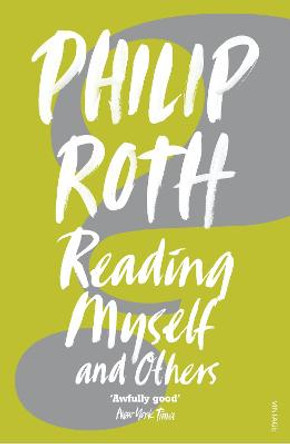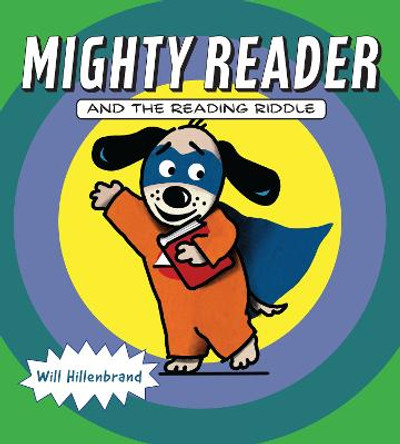Description
What are the unconscious processes involved in reading literature? How does literature influence our psychological development and existential challenges? A Psychoanalytic Perspective on Reading Literature offers a unique glimpse into the unconscious psychic processes and development involved in reading. The author listens to the 'free associations' of various literary characters, in numerous scenarios where the characters are themselves reading literature, thus revealing the mysterious ways in which reading literature helps us and contributes to our development.
The book offers an introduction both to classic literature (Poe, Proust, Sartre, Semprun, Pessoa, Agnon and more) and to the major psychoanalytic concepts that can be used in reading it - all described and widely explained before being used as tools for interpreting the literary illustrations. The book thus offers a rich lexical psychoanalytic source, alongside its main aim in analysing the reader's psychological mechanisms and development. Psychoanalytic interpretation of those literary readers opens three main avenues to the reader's experience:
- the transference relations toward the literary characters;
- the literary work as means to transcend beyond the reader's self-identity and existential boundaries; and
- mobilization of internal dialectic tensions towards new integration and psychic equilibrium.
An Epilogue concludes by emphasising the transformational power embedded in reading literature.
The fascinating dialogue between literature and psychoanalysis illuminates hitherto concealed aspects of each discipline and contributes to new insights in both fields. A Psychoanalytic Perspective on Reading Literature will be of great interest not only to psychoanalytic-psychotherapists and literature scholars, but also to a wider readership beyond these areas of study.
About the Author
Merav Roth, PhD is a training analyst and cultural researcher. She is former chair of the postgraduate Klein studies programme and of the doctoral unit for the interdisciplinary psychoanalytic PhD and is currently chair of the psychotherapy programme at the Sackler School of Medicine, Tel-Aviv University, Israel. She co-edited Melanie Klein: Essential Writings Volume II with J. Durban (2013).
Reviews
Merav Roth's book makes an important and unique contribution to the burgeoning study of reciprocal relations between literature and psychoanalysis. It will enrich true readers and writers alike with better understanding of the deep psychic processes involved in reading. As an author with a wealth of experience in both writing and teaching literature, as well as someone for whom - thanks to my late wife, the psychoanalyst Rivka Yehoshua - psychoanalysis was 'family', I was astonished to discover through this book novel and intriguing ideas of which I was previously unaware. At a time when writing workshops are flourishing and people write more than they read, Merav Roth's book is particularly important in challenging both readers and writers to delve ever more deeply into the hidden layers of the process of writing and reading."-A.B. Yehoshua, writer and Professor of Literature, Haifa University, Israel
"This book represents the confluence and mutual enrichment of two centrally important explorations of the human mind: literature and psychoanalysis. Its originality and uniqueness lie in the fascinating way in which they are brought together as equal partners in this dialogue. While well-versed in the breadth and depth of psychoanalytic thought, both classical and contemporary, it is not a psychoanalytic attempt to explain literature. Rather, using a range of literary works, it takes the reader-within-literature as the subject who articulates that which psychoanalysis reads in our minds. Thus, it brilliantly and simultaneously re-creates the immediacy of the experience of reading and the experience of being read and understood in terms of psyche and mind. For this enrichment it is warmly recommended for all readers, both literary and psychoanalytic."-Shmuel Erlich, Sigmund Freud Professor of Psychoanalysis (Emeritus), The Hebrew University of Jerusalem; Past-President, Israel Psychoanalytic Society
"A psychoanalytic perspective on reading literature - Reading the reader": "...Unlike the act of peeling which essentially reduces the object at hand -Roth's reading rather resembles the opening of a multitude of gates leading into an ever-expanding textual world. This recalls somehow the children in The Lion, the Witch and the Wardrobe who step into a wardrobe only to find themselves entering a magical kingdom. The author does not simply apply her sharp clinical listening to the text, nor does she collapse into the mechanical substitution whereby attending to a literary work equals listening to a patient's text. Rather, she moves Like a dancer, turning the literary text into a room of mirrors where transferences to the text multiply constantly. Rather than chaos, she distills from this movement a rich and transparent image. This productively reflects the dialectical quality Roth identifies in the texts she discusses and is also, as mentioned, a structural part of her own writing. She too, in her role of reader/writer, moves between the wish to achieve a full explanation and the choice to leave empty spaces that enable the reading/writing dynamic of her own text, in much the same way they produce the dynamic of reading and writing in the literary texts themselves. She, too, casts a beam of bright light on darker places, while, also shrouding other places which strike the innocent reader as clear and lucid, by creating fold upon fold, resonance upon resonance, a whirl of echoes and echoes of echoes - an acrobatic feat which she concludes skillfully by landing on her two feet. Her writing, in this sense, produces the very thing it describes. Over and beyond the linearity of the texts, Roth unravels the linearity of the reader him or herself. Who, then, is this reader/writer? This is how she opens her book: I am descended from a family of writers stretching over generations. The sound I grew up with was not the ticking of a clock but the tapping of a typewriter. The morning began with the clicking of its keys; their silence announced that it was time for lunch. The intervals between my mother's bursts of writing left us all in suspense. When the writing resumed we sighed with relief. My mother's silences were rarely spoken; they were translated into written words. Her writing was testimony to a fact that every child wants to deny; that most of her inner being was inaccessible and that within her were worlds I would never reach. 'Reading the writer' was to remain an enigma. (ibid, p. 11)That girl, whose first attempt to decipher a text was aimed at the musical score of the clicking of her mother's typewriter, transformed the question of "Reading the writer" - the one which was bound to remain unanswered - into the question of "Reading the reader". In the very act of responding, though, she herself becomes a writer: from being the reader of the other's literary piece, she turns into the one who, while reading, creates a literary piece of her own. This book does not just afford a look at the work of mourning which constitutes the act of reading. It harbors in itself the possibility for a work of mourning, pointing in its reading to the precious and meaningful not only in literature, but in human existence itself." Extract from Dana Amir (2021) When the Writer's Eye Meets the Reader's Eye: A Review of "A Psychoanalytic Perspective on Reading Literature: Reading the Reader" by Merav Roth, Psychoanalytic Perspectives, 18:2, 274-278, DOI: 10.1080/1551806X.2020.1801068
Kenneth Clark defines civilization by citing Ruskin's statement: "Great nations," Ruskin said, "write their autobiographies in three manuscripts: the book of their deeds, the books of their words, and the book of their art... But of the three, the only trustworthy one is the last."
The present book sheds light on the mutual insights (and the tools) of both psychoanalysis and literature, in order to explore, in an unprecedented manner, our daily modes of practicing civilization through the activity of reading. What happens when we read? We are introduced into this mystery in cumulative ways, by looking closely - through the author's psychoanalytic eyes - at a whole mosaic of exemplary reading experiences, as depicted by a great diversity of literary writers who originate from different cultures and who write in different languages. We are presented with a sort of world-wide encyclopedia of (literary) reading experiences, as illuminated by the author's psychoanalytic observations.
Psychoanalysts as well as literary scholars, students of humanities as well as teachers, and anyone who loves to read, can gain a deeper understanding of themselves and others, and a subtler grasp of the meaning and the use of literature for life, by engaging with the insights of this book.
Shoshana Felman, Author of Testimony: Crises of Witnessing in Literature, Psychoanalysis and History
Merav Roth's book makes an important and unique contribution to the burgeoning study of reciprocal relations between literature and psychoanalysis. It will enrich true readers and writers alike with better understanding of the deep psychic processes involved in reading. As an author with a wealth of experience in both writing and teaching literature, as well as someone for whom - thanks to my late wife, the psychoanalyst Rivka Yehoshua - psychoanalysis was 'family', I was astonished to discover through this book intriguing ideas of which I was previously unaware. At a time when writing workshops are flourishing and people write more than they read, Merav Roth's book is particularly important in challenging both readers and writers to delve ever more deeply into the hidden layers of the process of writing and reading.
A.B. Yehoshua, writer and Professor of Literature, Haifa University, Israel
This book represents the confluence and mutual enrichment of two centrally important explorations of the human mind: literature and psychoanalysis. Its originality and uniqueness lie in the fascinating way in which they are brought together as equal partners in this dialogue. While well versed in the breadth and depth of psychoanalytic thought, both classical and contemporary, it is not a psychoanalytic attempt to explain literature. Rather, using a range of literary works, it takes the reader-within-literature as the subject who articulates that which psychoanalysis reads in our minds. Thus, it brilliantly and simultaneously recreates the immediacy of the experience of reading and the experience of being read and understood in terms of psyche and mind. For this enrichment it is warmly recommended for all readers, both literary and psychoanalytic.
Shmuel Erlich, Sigmund Freud Professor of Psychoanalysis (Emeritus), The Hebrew University of Jerusalem; past-president, Israel Psychoanalytic Society
"...Unlike the act of peeling which essentially reduces the object at hand -Roth's reading rather resembles the opening of a multitude of gates leading into an ever-expanding textual world...The author does not simply apply her sharp clinical listening to the text, nor does she collapse into the mechanical substitution whereby attending to a literary work equals listening to a patient's text. Rather, she moves Like a dancer, turning the literary text into a room of mirrors where transferences to the text multiply constantly. Rather than chaos, she distills from this movement a rich and transparent image. This productively reflects the dialectical quality Roth identifies in the texts she discusses and is also, as mentioned, a structural part of her own writing. She too, in her role of reader/writer, moves between the wish to achieve a full explanation and the choice to leave empty spaces that enable the reading/writing dynamic of her own text, in much the same way they produce the dynamic of reading and writing in the literary texts themselves. She, too, casts a beam of bright light on darker places, while, also shrouding other places which strike the innocent reader as clear and lucid, by creating fold upon fold, resonance upon resonance, a whirl of echoes and echoes of echoes - an acrobatic feat which she concludes skillfully by landing on her two feet... This book does not just afford a look at the work of mourning which constitutes the act of reading. It harbors in itself the possibility for a work of mourning, pointing in its reading to the precious and meaningful not only in literature, but in human existence itself."
To read this review in full please see the following: Dana Amir (2021) When the Writer's Eye Meets the Reader's Eye: A Review of "A Psychoanalytic Perspective on Reading Literature: Reading the Reader" by Merav Roth, Psychoanalytic Perspectives, 18:2, 274-278, DOI: 10.1080/1551806X.2020.1801068
'What Roth has done is to stabilize the subjective experience of reading by identifying moments where it occurs in literature. This affords the elusive and important opportunity to examine reading when it has taken a more permanent, and thereby more easily observable, form. From literary depictions of reading, as found in the works of authors such as Aharon Appelfeld, Maya Bejerano, Hayim Nahman Bialik, Henry James, Eva Hoffman, Edgar Allan Poe, and Luigi Pirandello, it becomes possible to observe reading as it happens, so to speak, and so to bear witness to "both the conscious and unconscious mental processes involved in reading literature". From there, Roth illustrates with tremendous erudition and ardour how literature can become for the reader what the literary critic Kenneth Burke had in mind when he described literature as "equipment for living": reading is one means by which we can become better at living with, and on some occasions imaginatively transcending, all that human existence entails.'
To read this review in full please see the following: Benjamin H. Ogden (2022) A Psychoanalytic Perspective On Reading Literature: Reading The Reader, The International Journal of Psychoanalysis, 103:1, 236-240, DOI: 10.1080/00207578.2021.2007774.
Book Information
ISBN 9781138391314
Author Merav Roth
Format Paperback
Page Count 336
Imprint Routledge
Publisher Taylor & Francis Ltd
Weight(grams) 476g






